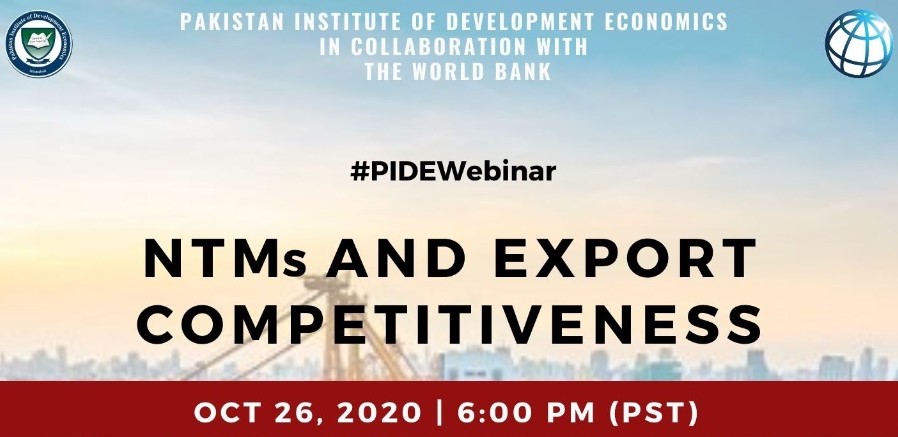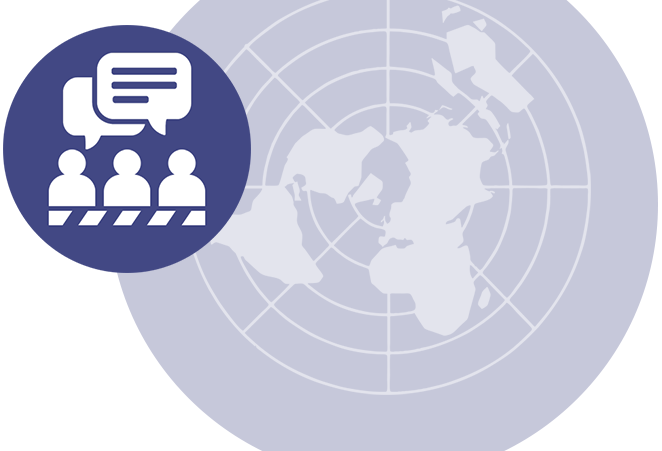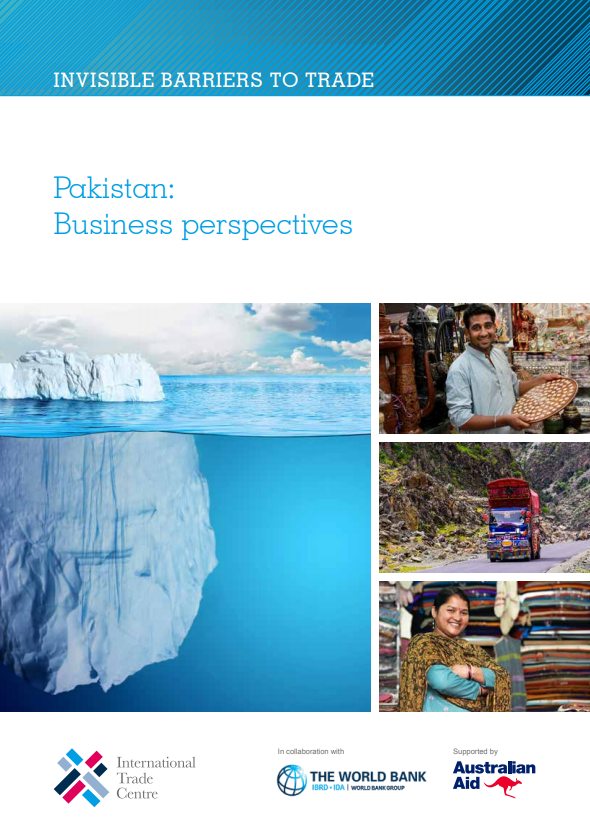
Webinar on "NTMs and Export Competitiveness"
Organised by Pakistan Institute of Development Economics (PIDE) in collaboration with the World Bank.
26 October 2020. 6:00 PM (PST)
Concept Note
Better integration with the global marketplace is important for Pakistan’s economic development. It will help create good quality jobs – especially for youth and women. In fact, by some estimates, the country can potentially increase its exports by up to $12 billion by 2024 - even taking into account disruptions caused due to COVID19 - according to the International Trade Centre’s latest export potential assessment for Pakistan, if restrictions to trade are lifted.
A key type of restrictions to trade is known as “non-tariff measures”. Think of sanitary or phytosanitary standards with which exporters need to comply when shipping their produce to international clients, for example. These measures are not necessarily introduced to actually restrict trade. They often are imposed, instead, to protect human, animal or plant health, or – in the case of technical barriers to trade - to ensure quality or inform consumers about production processes. But often times, they do become obstacles to trade, turning into “non-tariff barriers”. Non-tariff measure compliance may become too onerous for firms, and at times the mere process of finding the right information can be cumbersome. Either because the measures imposed are themselves complex, or because firms have low capabilities, making them unlikely to be able to comply (and certify their compliance).
This webinar will focus on the role that NTMs have in facilitating or disrupting trade in Pakistan. It will start with a presentation by Mr Samidh Shrestha, from the International Trade Center on their recent report – in partnership with the World Bank – “Invisible Barriers to Trade – Pakistan: Business Perspectives”, which builds on a survey of almost 1200 companies in Pakistan. It will follow with an expert panel discussion, including Dr. Aadil Nakhonda, and Dr. Manzoor, and moderated by Dr.Nadeem ul Haque.
Keynote Speaker
Mr Samidh Shrestha is a Market Analyst at the International Trade Centre (ITC) – a joint agency of the United Nations and the World Trade Organization (WTO). His work at ITC’s Trade and Market Intelligence section focuses on non-tariff measures (NTM) and market access. He has managed NTM Business Surveys in numerous countries in the Asia-Pacific, East-Africa, Middle East and North Africa, and the European Union region. He also coordinated the implementation of NTM Business Survey in Pakistan and contributed to the country report. He is also actively involved in other trade intelligence, market analysis and capacity building related projects.
Prior to ITC, Mr Shrestha gained experience in the private sector in Germany where he coordinated business process outsourcing (BPO) operations to Nepal. He has also worked at the Max Planck Institute where he supported research work on entrepreneurship, growth and public policy. He hold a Master’s degree in International Economics from the Graduate Institute of International and Development Studies (IHEID), Geneva and an undergraduate degree from Jacobs University, Bremen.
Panelist Bio
Dr Manzoor Ahmad is an international trade and Customs expert. He has served as Pakistan's Ambassador to the WTO; Member Customs at FBR and Deputy Director, World Customs Organization, Brussels.
Dr. Adil Nakhoda is an assistant professor at the Institute of Business Administration, Karachi, and a research fellow at the Center of Business and Economic Research (CBER) at IBA. He holds a PhD in international economics and specializes in international trade. He tweets @EconomistAadil
Moderator: Dr Nadeem ul Haque, VC, PIDE.
Video Recording
Event documents
Invisible Barriers to Trade - Pakistan: Business perspectives
Results of the NTM Business Survey in Pakistan
Upgrading quality infrastructure and enforcing quality compliance are key to Pakistan’s export development.
A survey of almost 1,200 companies on non-tariff measures found that more than half of Pakistani exporters face regulatory or procedural trade-related obstacles.
The report recommends strengthening the quality and customs infrastructure in Pakistan. Adopting digitally oriented solutions such as an integrated trade portal is essential to give necessary guidance to exporters.
Presentations:



